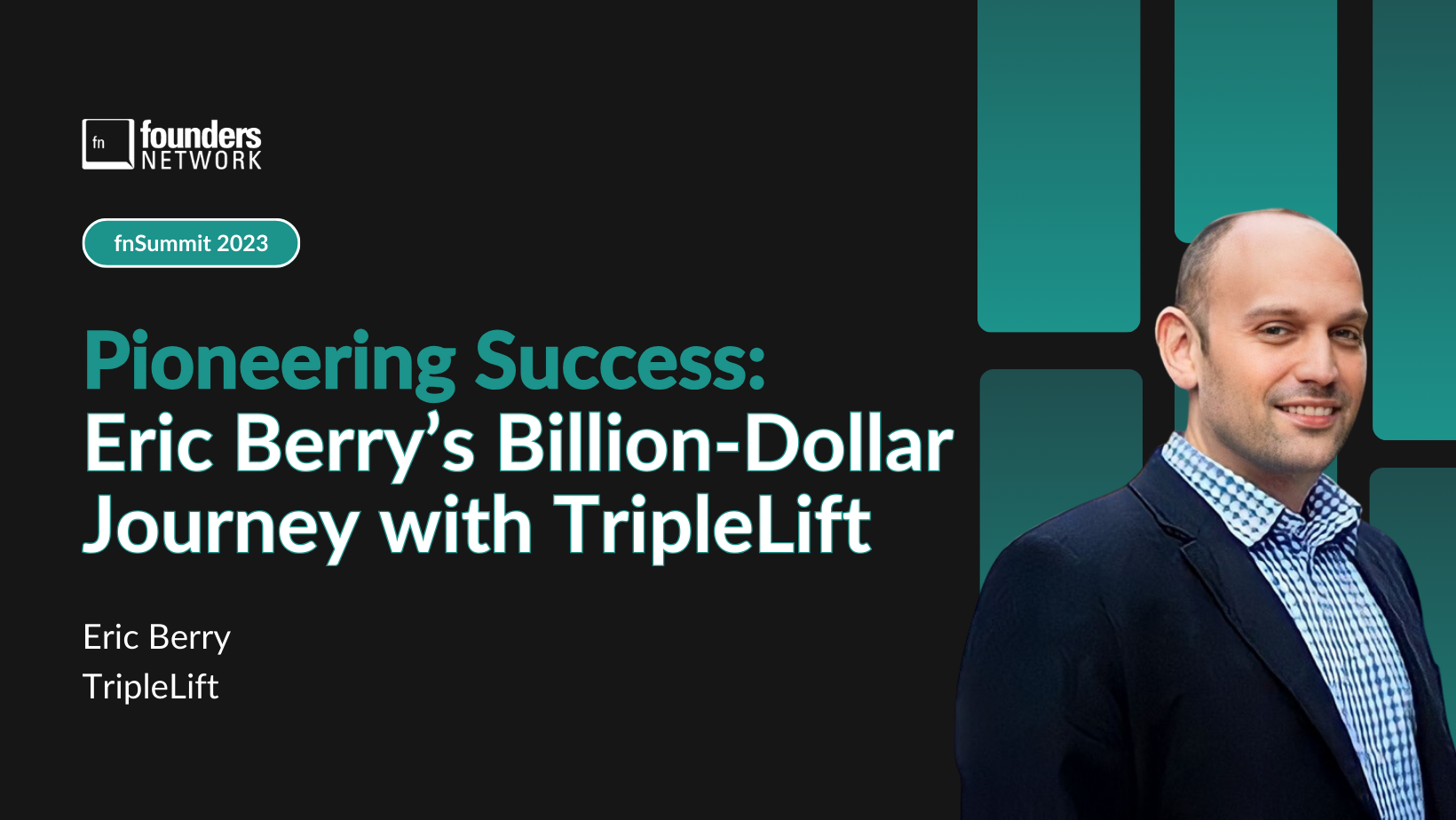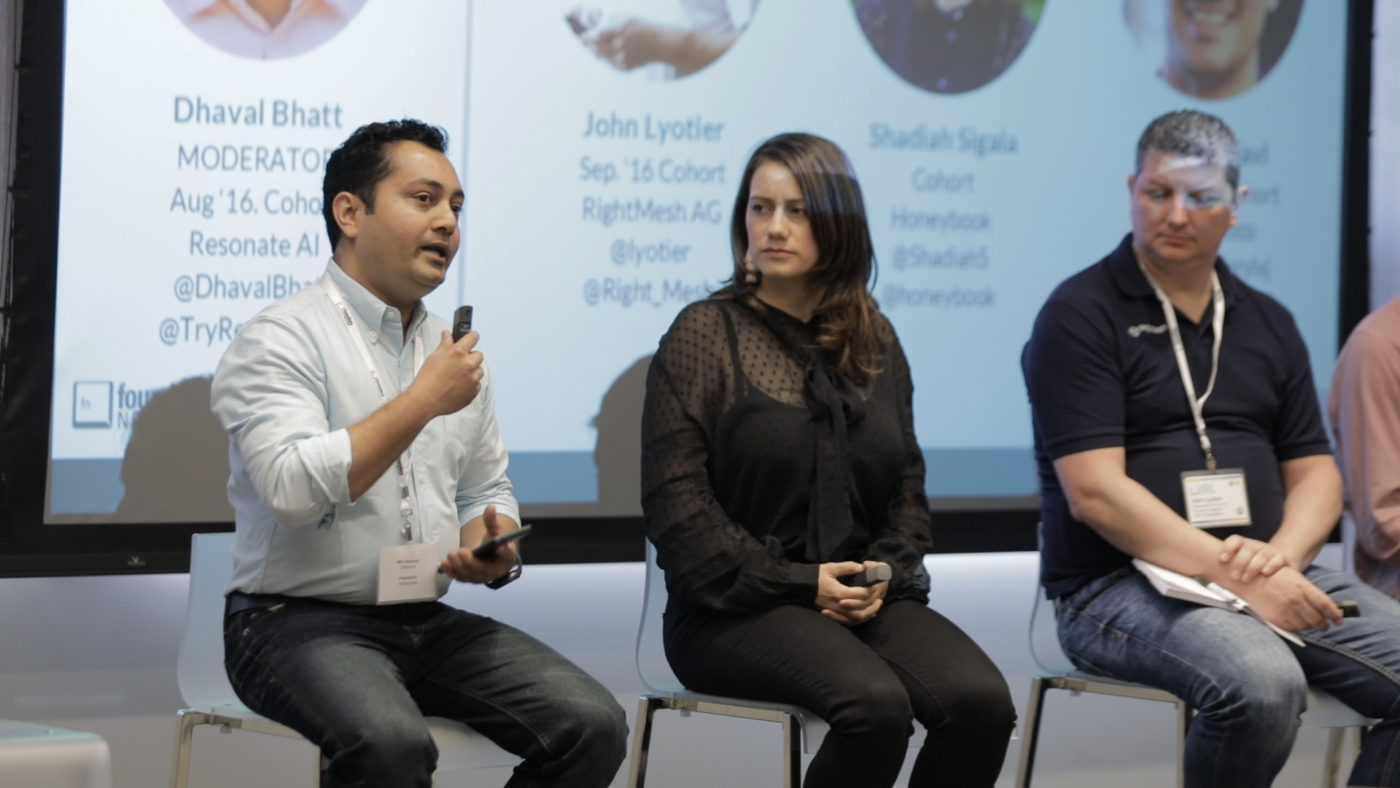
To learn more about his journey from M&A lawyer to tech entrepeneur, click here to access the live stream of Eric Berry’s keynote on October 17.
As a former mergers and acquisitions lawyer turned tech entrepreneur, Eric Berry is a testament to the transformative power of pursuing one’s passion.
After his stint in M&A law left him feeling unfulfilled, Eric made a bold pivot into the tech industry where he co-founded TripleLift. After a decade of managing the adtech startup, he ultimately sold TripleLift for just under $1.5 billion after raising less than $17 million in VC funding, in a deal that marked one of the most significant cash returns in the history of the New York tech scene. Today, he serves as the co-managing partner and co-founder of Bedford Bridge, an investment firm focused on healthcare technology companies.
On October 17, Eric will keynote fnSummit 2023, Founders Network’s 8th Annual Fall conference. As part of the event, he’ll share his journey co-founding and running TripleLift and the lessons that experience taught him.
fnSummit is a 3-day conference that gives startup founders the opportunity to learn from other tech founders in the startup ecosystem, build deep relationships with investors, and uncover solutions to the challenges they’re facing. The annual event provides the perfect setting for off the record discussion, reflection, and networking.
Here’s a sneak peek of Eric’s startup journey and his advice for other startup founders.
Finding your passion
Eric studied computer science and biomedical engineering at MIT before going to law school. After graduating he became a mergers and acquisitions lawyer focusing on private equity. But he quickly found the work wasn’t where his heart was.
“It was just the worst. I hated it,” Eric says. “It felt like I was just a cog in the gears of commerce. It was the kind of work where it felt like if you didn’t do it, it wouldn’t matter at all. And it made me realize I had to get back to what I really cared about.”
He decided to go into tech and began working for a company called AppNexus, a cloud-based online advertising platform that was ultimately acquired by AT&T. But after just two years there, Eric and a co-worker decide to venture off on their own.
“It’s remarkable just how different being an entrepreneur is to what I was doing before. It was a stark contrast. It’s about being in charge of yourself and your destiny and how you spend your time and having a direct hand in your success,” Eric says. “At first the idea of doing our own startup was daunting. But we did it, and it worked out.”
Doing more with less
Eric’s first venture was adtech startup TripleLift. During his time as CEO, TripleLift consistently achieved profitability with a remarkable growth rate, boasting a “rule of” 70+ metric. The company’s success was further underscored by its recognition on the Inc. 5000 list as one of the Fastest-Growing Private Companies in America for an impressive six consecutive years, spanning from 2017 to 2022, his last year at the company.
After close to a decade of leadership, during which he operated with less than $17 million in invested capital, Eric successfully sold TripleLift to Vista Equity Partners for just under $1.5 billion.
“With Triple Lift, we were operating in a disfavored industry. VCs didn’t particularly want to invest in adtech. So whether or not we wanted to run a lean business, we had to run a lean business,” Eric says. “That meant that from 2015 through our sale in 2021, we were profitable. Our annual planning was exceptionally disciplined, focused around how do we create the most aggressive growth plan while still breaking even. And it also meant we had to kind of ruthlessly prioritize how we approached our businesses, our opportunities, our hiring, and be consistently introspective about our structures and our personnel.”
Choosing a path
Drawing from his invaluable experience at TripleLift, Eric offers crucial advice for startup founders. In some cases, he says, having a solid product strategy and a strong go-to-market (GTM) approach can be more important than having the best product quality. It’s important to note that this doesn’t mean neglecting product quality, but rather acknowledging what truly drives success in a competitive landscape.
Eric emphasizes that achieving market fit should be the ultimate goal; a product can be impeccable, but if it doesn’t resonate with the market, its quality alone won’t secure success. Therefore, founders should prioritize aligning their strategies and resources with the pursuit of market fit, ensuring that their product meets a genuine demand.
“Some companies are tech companies–companies where differentiated tech is fundamentally important. And some companies are go-to market companies where the go-to market is just frankly more important than the underlying tech is,” Eric says. “Founders need to be realistic and honest with themselves about what sort of company they’re running and where their differentiation comes in and where they need to be spending their marginal dollars.”
To learn more about his journey from M&A lawyer to tech entrepeneur, click here to access the live stream of Eric Berry’s keynote on October 17.






